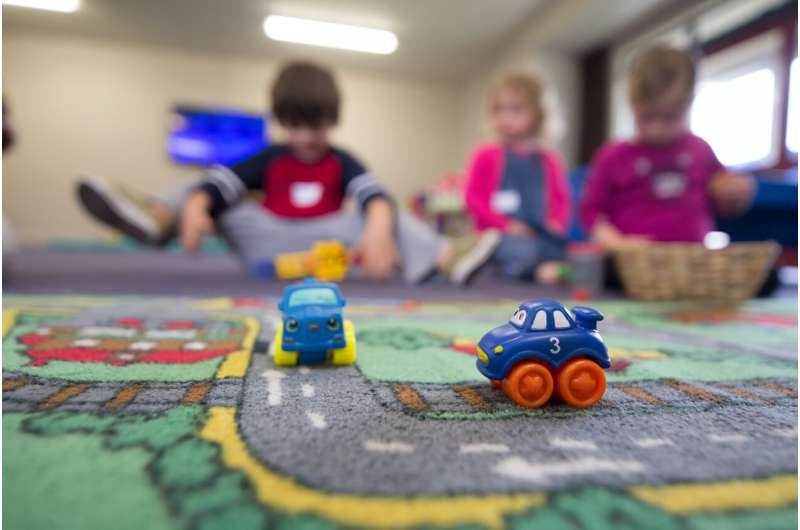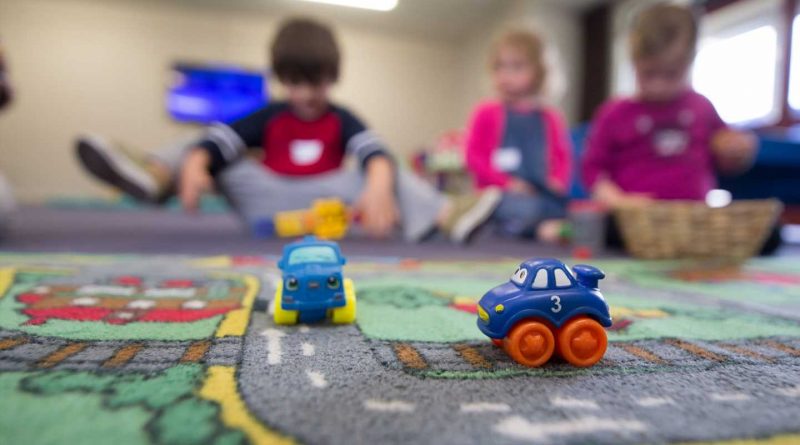Ask the Pediatrician: Preventing preschool expulsions, AAP policy explained

For very young children, preschool and child care should be safe, nurturing spaces that support learning and growth. All too often, though, children are forced to leave early education and child care programs when they behave in dangerous or disruptive ways.
Public and private preschool programs serving three- to four-year-olds suspend an estimated 50,000 students per year. Another 17,000 are expelled. This means that 250 preschoolers, on average, are forced out of classrooms and child care centers every single day.
When preschoolers hit, kick, scream, use harsh language or refuse to follow adult instructions, other kids don’t feel safe. This is why school administrators, teachers and child care professionals often resort to suspending or expelling children who behaves in aggressive or harmful ways.
Yet studies of young children who act out in these settings suggest there’s more to the story. And there are ways we help. We can address underlying problems to reduce preschool expulsions and avoid the potentially lifelong damage that preschool expulsions often cause.
The more we learn about child development and the effects of stress and trauma on children, the clearer it is that children don’t behave badly by choice. They are often driven by anger, fear and frustration and communication skills that aren’t up to the challenge of explaining how they feel.
The American Academy of Pediatrics (AAP) sees preschool and child care as primary sources of healthful learning in a young child’s life. And while we support the right of schools and care centers to keep all children safe, we are concerned that:
We know that preschools and child care centers can play a key role in helping children prepare for success in school and life. That’s why we need to consider the reasons for problem behaviors and how to address them.
Any adult who’s tried to manage a misbehaving child knows how frustrating the situation can feel. Our tendency is to assume that kids are choosing to act out– but studies of young children reveal a very different picture. For example:
Kids living with adversity and trauma are also at greater risk of preschool expulsion than their peers. Sources of trauma that can affect brain development and behavior include: physical, sexual or emotional abuse; criticism or neglect; hunger or housing instability; violence witnessed at home or in the community; racism, bigotry or rejection; bullying, whether in person or online; or separation from a parent or guardian due to death, divorce, desertion, incarceration or any other cause.
Understanding why some preschoolers suffer from behavioral problems does not erase our responsibility to help them learn how to do better. Instead of judging and punishing kids who misbehave, preschool educators and child care providers need to offer specific kinds of support. Preschoolers need a safe, stable learning environment, nurturing relationships with teachers and caregivers, and referrals to mental health services and supports when appropriate.
Preschool and child care professionals also need support to do their best for the children in their care. They should have classrooms that are well-stocked and maintained, reasonable limits on class size and workload, and access to mental health professionals who can assess students and offer behavior management strategies. They also need training in child development, practical ways to teach children social emotional regulation skills, and mental health consultation for themselves in order to prevent burnout.
We believe that preschool suspensions and expulsions do more harm than good. That’s why we need to bring preschool and child care professionals together with pediatricians, parents, caregivers and the community to create a more understanding, supportive environment for young children.
We also recommend that pediatricians and child health specialists work together at the community and national level to eliminate implicit bias in preschool and child care settings.
Local and federal advocacy can provide much-needed support for preschool and child care providers, who often face high levels of stress. This stress can be amplified by inadequate pay and training.
Local, state and federal programs that support early childhood educators and provide kids and families with opportunities to build resilience will make a key difference all around.
When we come together to support young children, their preschool years can be a time of robust growth and learning that prepares them for a lifetime of good health and socioemotional well-being.
More information:
For more information, go to HealthyChildren.org.
2023 Tribune Content Agency, LLC.
Source: Read Full Article
